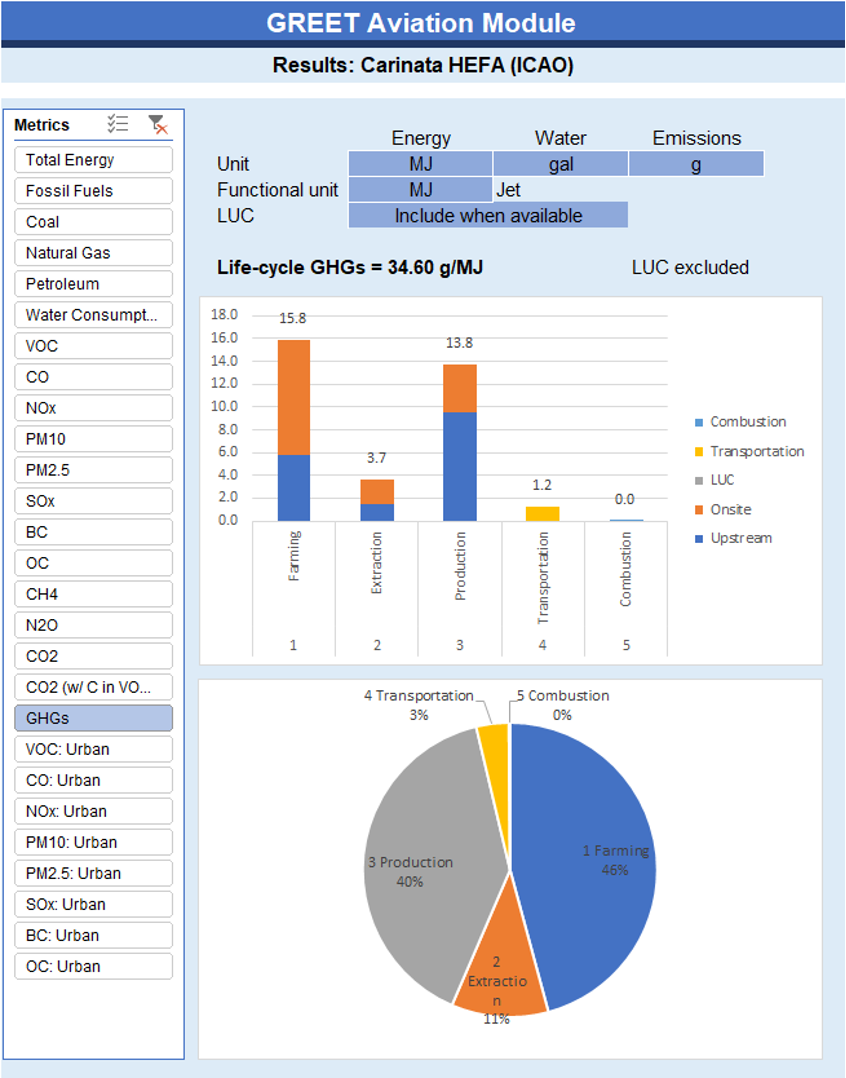Sustainable Aviation Fuel (CORSIA)
The Carbon Offsetting and Reduction Scheme for International Aviation (CORSIA) is a global market-based mechanism to reduce greenhouse gas (GHG) emissions from international aviation. CORSIA’s goal is to achieve carbon neutral growth of international aviation emissions from a 2019 baseline. The mechanism is currently voluntary and will become mandatory in 2027. The uptake of sustainable aviation fuel (SAF) across the sector is a key aspect in delivering the reduction goals set by CORSIA. CORSIA was established by the International Civil Aviation Organization (ICAO).
How we can help
Life Cycle Associates is a recognized leader in conducting life cycle analyses of aviation fuels. Our team has deep experience across the broad range of feedstocks and conversion technologies used to produce SAF and the various GHG policies and incentives supporting their production. We work with our clients to maximize the commercialization potential for their unique pathways.
|
Feedstock |
Technology |
|
Algae |
Hydroprocessing |
|
Oils and Fats |
Hydroprocessing |
|
Ethanol |
Dehydration, |
|
Dextrose |
Catalytic conversion |
|
MSW Woody Biomass |
Gasification, |
| Landfill Gas |
Reforming, |
Our environmental impact assessment of aviation fuel pathways
We developed a proprietary life cycle model (LCM) that models the environmental sustainability impacts of several petroleum and alternative aviation fuel pathways. To date, our team modeled jet fuel produced from vegetable oils, photosynthetic and heterotrophic algae, and FT jet fuel derived from municipal solid waste and biomass using analysis tools for aviation fuel polices. Our experience includes the Argonne National Laboratory (ANL) GREET Aviation Module to evaluate the environmental impact of various aviation fuel production pathways.

Our Experience with using GREET for CORSIA
The analyses conducted by Life Cycle Associates are based on life cycle inventory data extracted from the Argonne GREET model, as well as LCI data from sources such as GHGenius and the EU JRC and CORSIA studies.
The analysis includes field-to-pump analysis and pump-to-wake analysis, which is based on emission factors and energy use data for specific aircraft/engine combinations for the landing/take-off and cruise phases of flight.
We work with clients to properly allocate emissions within CORSIA, which can differ from GREET, including indirect land use change (iLUC) values.
Certification for CORSIA Eligible Fuels
The ISCC (International Sustainability & Carbon Certification) and RSB (Roundtable on Sustainable Biomaterials) certify CORSIA eligible fuels. ISCC CORSIA 205 provides the methodology used to calculate the life cycle emission values of a CORSIA eligible fuel. This is an alternative to accepting the default life cycle emission values for CORSIA eligible fuels.
Questions
Do you have questions about fuel life cycle analysis for your specific business case for Sustainable Aviation Fuels (CORSIA)?
